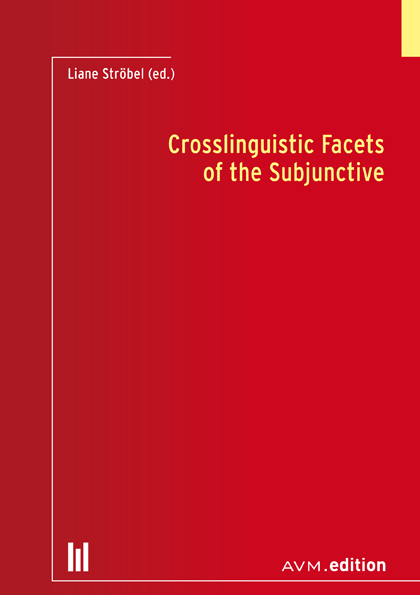Crosslinguistic Facets of the Subjunctive
 No other grammatical phenomenon causes as many problems in teaching and learning as the subjunctive. Most grammars devote as many pages to the presentation of the rules as to the exceptions. This becomes even more frustrating when dealing with the differences, not only between different language families, but even within the Romance language family alone, since it seems that each language shapes the functional area of the subjunctive individually. The aim of this volume is therefore to reconsider the representation of the subjunctive in Romance languages in a crosslinguistic and contrastive way. First, an overview of research in this area from the beginnings to the latest neurolinguistic findings will explore the complexity of the issue. Next, specific phenomena of the subjunctive at the interface of its functional domain with the indicative will be illustrated by means of appropriate case studies. On this basis, an attempt is made to trace the polyfunctionality and the differing uses in the Romance languages and beyond to a common pattern with language-specific margins. This allows us to explain, not only contrastive differences, but also the decline of the subjunctive in some domains and languages, as well as demonstrate the range of substitution possibilities. Finally, the view is extended to other language families and new impulses for foreign language teaching are presented.
No other grammatical phenomenon causes as many problems in teaching and learning as the subjunctive. Most grammars devote as many pages to the presentation of the rules as to the exceptions. This becomes even more frustrating when dealing with the differences, not only between different language families, but even within the Romance language family alone, since it seems that each language shapes the functional area of the subjunctive individually. The aim of this volume is therefore to reconsider the representation of the subjunctive in Romance languages in a crosslinguistic and contrastive way. First, an overview of research in this area from the beginnings to the latest neurolinguistic findings will explore the complexity of the issue. Next, specific phenomena of the subjunctive at the interface of its functional domain with the indicative will be illustrated by means of appropriate case studies. On this basis, an attempt is made to trace the polyfunctionality and the differing uses in the Romance languages and beyond to a common pattern with language-specific margins. This allows us to explain, not only contrastive differences, but also the decline of the subjunctive in some domains and languages, as well as demonstrate the range of substitution possibilities. Finally, the view is extended to other language families and new impulses for foreign language teaching are presented.
zum Buch im ULB-KatalogPlus
zum Buch auf der Verlags-Website
The aesthetics of melancholia: medical and spiritual diseases in medieval Iberia
This book explores the intersection between medicine and literature in medieval Iberian literature and culture. Its overarching argument is that thirteenth- and fourteenth-century Iberian authors revalorized the interconnection between the body, the mind, and the soul in light of the evolving epistemology of medicine. Prior to the reintroduction of classical medical treatises through Arab authors into European cultures, mental disorders and bodily diseases were primarily attributed to moral corruption, demonic influence, and superstition. The introduction of novel regimens of health as well as treatises on melancholia into academic institutions and into the cultural landscape provided the tools for newly minted authors to understand that psychosomatic illnesses stemmed from malfunctions of the body’s biochemical composition. This book demonstrates that the earliest books written in the Iberian vernaculars contain the seeds that effect the shift from a theocentric worldview to a humanistic one. I support my argument with the close readings of multiple texts, including medical treatises and religious writings, and King Alfonso X’s Cantigas de Santa Maria, Juan Manuel’s Conde Lucanor, and Juan Ruiz’ Libro de buen amor. Even though these texts differ in literary genre, rhetorical strategy, and even purpose, this study proves that they collectively employ humoral pathology and melancholic discourses as a means of underscoring the frailty and transience of human life by showing how somatic conditions sicken the body, mind, and soul of man unto death.
zum Buch im ULB-KatalogPlus
zum Buch auf der Verlags-Website
